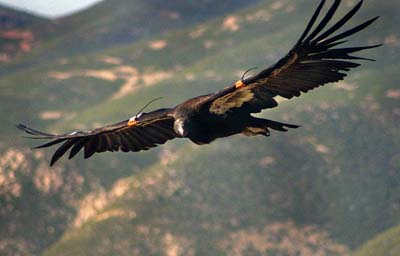The U.S. Environmental Protection Agency has denied a recent
petition from environmental groups for a nationwide ban on use of
lead bullets, and the federal agency dropped the consideration
without completing a 90-day comment period.
The U.S. Environmental Protection Agency has denied a recent petition from environmental groups for a nationwide ban on use of lead bullets, and the federal agency dropped the consideration without completing a 90-day comment period.
The EPA’s decision came Friday to reject the petition on the grounds that the agency lacks authority under 1976 legislation called the Toxic Substance Control Act, and it followed heavy opposition by gun-control groups such as the National Rifle Association. Five environmental groups, including the Center for Biological Diversity, had filed the petition Aug. 3.
Steve Owens, EPA assistant administrator for the Office of Chemical Safety and Pollution Prevention, noted in a statement issued Friday how the petition is one of hundreds filed each year by outside groups and that the agency had 90 days to respond by law.
“EPA reached this decision because the agency does not have the legal authority to regulate this type of product under the Toxic Substances Control Act (TSCA) – nor is the agency seeking such authority,” he said in the press release.
The EPA, meanwhile, has yet to rule on another portion of the petition asking for a ban on lead fishing tackle, according to the agency.
San Benito County residents who hunt in the area are accustomed to such mandates. Nearly three years ago, California legislators approved a ban on lead-based ammunition in the condor range, which includes this county.
The environmental advocacy groups earlier this month petitioned EPA chief Lisa Jackson to ban the use of lead bullets, lead shot and lead fishing sinkers on the grounds that the continued use of lead violates the Toxic Substance Control Act. The petition argued that lead shot and lead bullet fragments routinely poison scavengers, songbirds, predatory birds, waterfowl and some mammals.
The petition prompted strong reactions from many sporting groups that oppose the ban as an attack on hunting and fishing or because they feel it lacks justification.
“There is simply no scientific evidence that the use of traditional ammunition is having an adverse impact on wildlife populations that would require restricting or banning the use of traditional ammunition beyond current limitations, such as the scientifically based restriction on waterfowl hunting,” said Steve Sanetti, president of the National Shooting Sports Foundation.
As an example, the number of breeding pairs of bald eagles, a species known to die from lead poisoning, increased 724 percent from 1981 to 2006 in the U.S., according to the U.S. Fish and Wildlife Service.
The Center for Biological Diversity responded to the decision in a statement by contending that 10 million to 20 million birds and other animals die each year from lead poisoning in the United States.
“The EPA had ample evidence that lead bullets and shot have a devastating effect on America’s wildlife, yet has refused to do anything about it. It’s disappointing to see this country’s top environmental agency simply walk away from the preventable poisoning of birds and other wildlife,” said Darin Schroeder, vice president for Conservation Advocacy at American Bird Conservancy.
McClatchy-Tribune News Service contributed to this report. For a prior story in the Free Lance providing both sides of the debate, go here.










